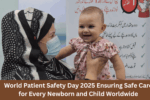New research has shown a strong connection between early life trauma and higher chances of addiction in adults across the United States. Many people might not realize how their childhood experiences can deeply affect their future behavior, especially regarding drug or alcohol dependency. This study highlights the urgent need to address childhood trauma to reduce addiction rates.
Understanding this link is important for families, schools, and communities, especially for young people who are just beginning to face life’s challenges. By learning more about how trauma impacts the brain and behavior, we can create better support systems to help those at risk before addiction sets in.
What Is Early Trauma?
Early trauma refers to difficult or harmful experiences that a child goes through during their formative years. This can include physical abuse, emotional neglect, domestic violence, or losing a parent. Many children suffering from these experiences do not get the help they need, which can leave lasting effects on their mental and emotional health.
Such trauma can disrupt a child’s development and affect how they cope with stress as adults. When people do not heal from early trauma, they may turn to drugs or alcohol to manage their pain, increasing the risk of addiction over time.
Key Findings of the Study
The study surveyed thousands of U.S. adults and found that those who experienced trauma during childhood were significantly more likely to struggle with addiction later in life. The research suggests that early trauma impacts brain chemistry and makes it harder for people to resist harmful habits.
One critical finding is that the more types of trauma a person experiences, the higher their chances of addiction. This link was consistent regardless of background, age, or economic status, pointing to the widespread effects of childhood trauma across all communities.
Why Does Early Trauma Lead to Addiction?
When a child undergoes trauma, it can flood their brain with stress hormones like cortisol. This intense stress can alter how the brain develops, especially in areas related to emotion, decision-making, and reward processing. These changes increase vulnerability to addiction.
Many adults who experienced trauma as children use substances to numb emotional pain or escape difficult memories. Unfortunately, this coping mechanism often leads to dependency, because the same substances can trigger the brain’s reward system in unhealthy ways.
The Role of Mental Health Support
Proper mental health care can help break the cycle of trauma and addiction. Counseling, therapy, and support groups can provide tools to manage emotions and build healthier habits. Early intervention is especially important to reduce long-term effects.
Schools and communities can also play a role by offering safe spaces where children feel valued and supported. By recognizing signs of trauma early and providing appropriate help, we can lower addiction risks and improve quality of life for many.
Prevention Strategies for Families and Communities
Families should aim to create stable, loving environments where children feel secure. Open communication and active listening can help children process difficult experiences without turning to harmful coping methods. Learning about trauma and its impact is a strong first step for parents and caregivers.
Communities can help by promoting awareness about trauma and addiction through education and public programs. Encouraging people to seek help and removing the stigma around mental health issues are key to making progress.
Conclusion: Moving Forward with Awareness
This important study sheds light on how early trauma affects addiction rates among U.S. adults, offering clear reasons to focus on prevention and healing. By supporting children who face trauma and improving mental health resources, we can reduce the number of people caught in addiction’s grip.
For younger readers, this means understanding the importance of caring for mental well-being from a young age. It also means being compassionate to others who might be struggling silently. Together, we can build stronger, healthier communities free from the long-term impacts of early trauma.




